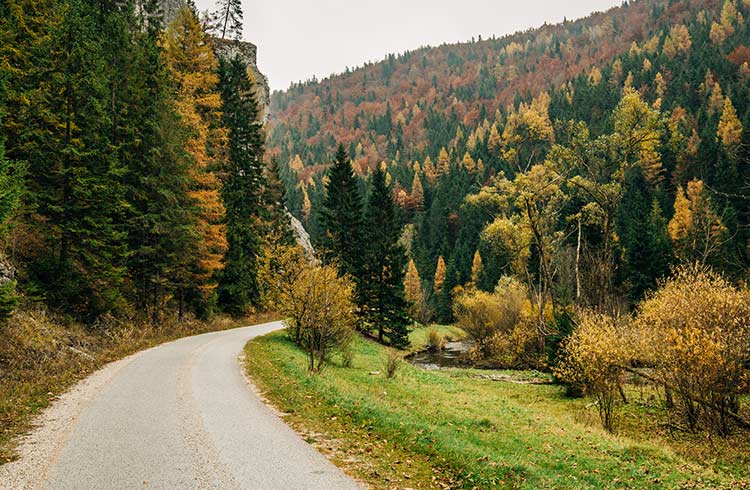Driving in Slovakia: Tips & Advice for Safer Road Travel
Coronavirus (COVID-19) and travel: The situation around the world is changing dramatically. Various governments have changed their travel warnings to restrict travel during this time. To understand how this may impact cover under your policy, please go to our FAQs and select your country of residence.
For the latest travel warnings and alerts around the world, read about lockdowns and border restrictions.
Slovakian roads are normally kept in good condition, thanks in part to a mandatory road tax common to Central Europe. Find out what you need to know before taking to the roads.
 Photo © Getty Images/Rasto Blasko / EyeEm
Photo © Getty Images/Rasto Blasko / EyeEm
At the time of writing, a vignette (toll ticket to allow you to drive in Slovakia) for one week cost €10, for a month €14, and for one year €50.
Good roads, poor drivers
The quality of Slovakian drivers, however, is not always up to par with the roads. There's a reason why this country has one of the highest rates of road deaths in Europe. In response to this, the Slovakian government implemented a program to improve road safety called "Decade of Action in Road Safety 2011 - 2020".
Some Slovakian motorists can be aggressive speeders, tailgaters, and overtakers, even if their space for manoeuvre is dangerously small.
If you're driving a foreign car, there's a silver lining to this. Slovaks, especially in the city, tend to know outsiders and country folks can't keep up, and often give them more space. But don't assume they will. Better to take a defensive stance.
Be especially wary of cars trying to overtake you. Blind turns and hills seem to afford a fun challenge for an alarming number of drivers. Older cars and trucks might travel very slowly, so it's best to slow down a bit and let them pass.
What to look out for
On unlit country roads, also be on the lookout for cyclists on either side of the road. They may not have reflectors and could be wearing dark clothing.
Know that the speed limits are a bit more generous than the rest of Europe. In developed areas it's 60 km/h, outside urban zones it's 90 km/h, and on highways it's 130 km/h. There are speed traps and you will get caught and stung with a hefty fine if you go over.
Headlights must always remain on, even in summer, even in blinding sunlight.
There is zero tolerance for drunk driving. If you're in an accident, police will order a breath test to all drivers involved. Any alcohol level above 0% means jail time.
In winter there is often heavy snowfall, and roads become icy and slippery. Since 2009 winter tyres have been compulsory on snowy roads. But you should equip yourself for the worst: carry extra warm clothing, hot drinks, a shovel, and some sacking to give tyres more grip on slippery surfaces.
Talking on the phone while driving is against the law. Yes, everyone else does it, but that won't work on the cop that pulls you over.
Pedestrians have the right of way on crosswalks, and they know it. Don't expect them to look before crossing.
Get a travel insurance quote for Slovakia
You can buy at home or while traveling, and claim online from anywhere in the world. With 150+ adventure activities covered and 24/7 emergency assistance.
Simple and flexible travel insurance
You can buy at home or while traveling, and claim online from anywhere in the world. With 150+ adventure activities covered and 24/7 emergency assistance.
Get a quote
1 Comment
How can I get a local disabled driver sticker or certificate?